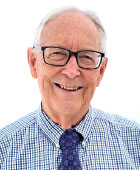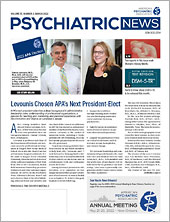My career arc includes having a long-time practice in preventive and environmental medicine. Over the years, I have become increasingly concerned about the impacts of the climate crisis. My wife, Mary Roessel, M.D., a Navajo psychiatrist and APA Area 7 Trustee, introduced me to Navajo healing, ceremony, and philosophy from which I learned that “we are part of nature.” I redirected my professional focus to climate and health. I read extensively and consulted Indigenous leaders about their perspectives.
This led me to become interested in the interface between Indigenous knowledge and climate change, eventually leading to the creation of the book Groundswell: Indigenous Knowledge and a Call to Action for Climate Change. The book combines the writings of Indigenous people with those of experts on climate change. This merging of two perspectives crystallized the relationship between two systems: Traditional Ecological Knowledge and Western science.
We recently made a presentation at COP26 in Glasgow. COP26 stands for the 26th Conference of the Parties. My collaborators and I formulated questions for our presentation: How can Indigenous knowledge be utilized to address the climate crisis? How can complexity science and traditional ecological knowledge assist our search for new solutions? How can Indigenous futurism impact our perspective? The title of our presentation was “Walk in Beauty—Future Dreaming Through Indigenous Knowledge and Western Science.” Our intent was to persuade others that applying Indigenous knowledge can change the world.
Our presentation resonated with attendees and other presenters at COP26. Many participants were young and enthusiastic and offered creative solutions. We attended fascinating presentations by and about the Sami people from Finland, Russia, and Norway and Indigenous people in Canada and discussed the “Yellowstone to the Yukon” project and nature-based solutions to climate change. There was significant support for the Land Back movement in Canada and the Amazon. Indigenous people could add significantly to nature-based solutions, especially if the Land Back movement takes hold and leads to the return of stolen lands.
The marches and public expressions of urgency were high points of the COP26 experience. The Youth March was filled with enthusiasm; many young people gave compelling speeches, leading us to hope that young people may break through current leaders’ inability to keep global warming increases under 1.5 C.
The final governmental agreement, the most publicized component of this massive conference, was simultaneously significant and disappointing. Although there were some major commitments to reduce methane and to continue the pursuit of other forms of carbon reduction, the overall lack of concrete global commitments and the absence of meaningful reparations and protections for more endangered nations (which are not major contributors to climate change) were glaring omissions from the final agreement that emerged from the conference.
Psychiatry plays significant roles in responding to the climate crisis. An obvious use of our expertise is to recognize, prevent, and treat the traumatic impacts of extreme weather events, the neuropsychiatric consequences of heat and pollution, and eco-anxiety and mood disorders attributable, in part, to climate change.
As we expand our perspective, we can address denial, disavowal, and “green washing” of the scientific facts about the harms of continued extraction and consumption of fossil fuels. As health professionals, we have ethical obligations to speak up about health threats to individuals and the community. More frequent extreme climatic and weather events must be recognized as not just “another bad storm.” The extensive loss of coral reefs and measurable sea-level rise must be brought to our society’s attention.
Eco-anxiety, denial, and dissociation are within the purview of psychiatry. We must address these with our patients. We are good at reframing and motivating our patients to change, and we have excellent treatments for anxiety. Unfortunately, I did not encounter these topics at COP26.
Our collective has decided to engage with young people with some emphasis on artists who are members of minority groups. They are among those affected “first and worst” by the climate crisis and may benefit the most if the world makes the necessary changes to mitigate, prevent, and reverse the causes and harms of global warming. Taking action is one of the best ways to address eco-anxiety. We can simultaneously foster prevention, help those with eco-anxiety, and make changes that mitigate the climate crisis (see
www.envisionthebigpicture.com).
Following the lead of our Indigenous allies will produce reciprocity with nature. It would assist in changing our consumer, extraction economy. It will foster equity and equality within our diverse society to reverse nature-based injustice. ■

